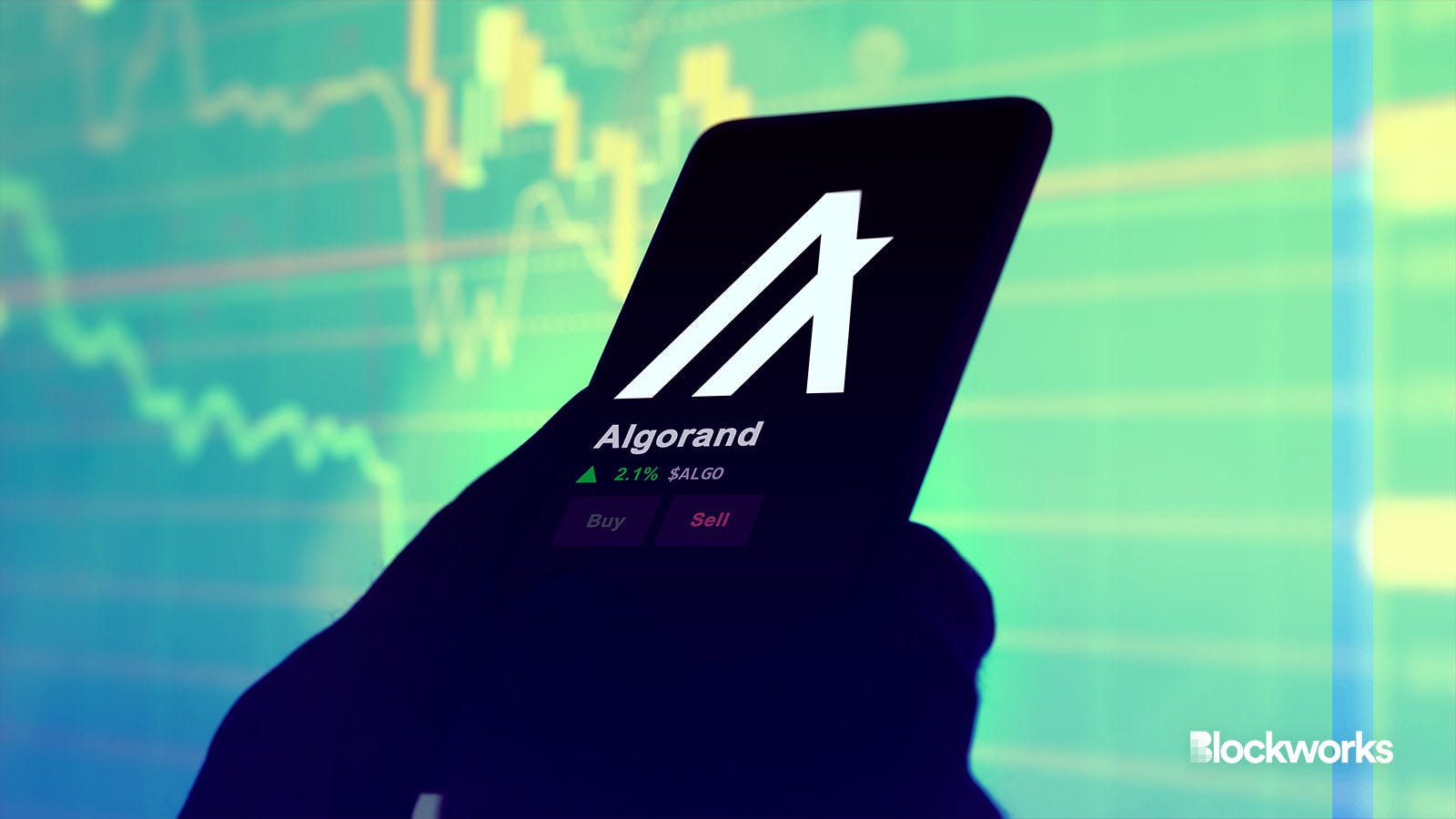Algorand fork Voi tries a blockchain reboot
Exclusive: The self-declared “community-powered blockchain” testing a new network based on Algrorand tech

Maurice NORBERT/Shutterstock, modified by Blockworks
Veteran members of the Algorand proof-of-stake blockchain ecosystem have banded together to launch a new iteration of the open-source code, called Voi, which is currently in testnet.
Leading the new project is Chris Swenor, co-founder of both Reach, a blockchain development platform and the Algorand decentralized exchange (DEX) HumbleSwap.
Work on Voi began in 2022, with a premise that the blockchain should better align incentives with its community of developers and users, and motivated by Swenor’s frustration with perceived shortcomings within the crypto industry.
“I looked around and I was so frustrated that I saw that [venture capitalists] and the early builders owned over 90% of all tokens, and the people that are actually still there during the bear market really didn’t own the chain, but they’re still there pouring their heart into it,” Swenor told Blockworks.
Voi is only forking the Algorand code, but not the chain’s state. So, unlike the failed EthPoW fork of Ethereum, for instance, Voi will have its own crypto token, but one with no connection to ownership of ALGO.
In software development, a repository fork is essentially a copy of a repository that allows you to freely experiment with changes without affecting the original project. That’s what’s happening here, in contrast to an Algorand blockchain fork, which is not possible.
Algorand has struggled to attract users in recent years. Its seven-day dex volume, for example, is currently less than $10 million, according to DeFi Llama, placing it 38th by that metric.
Read more: Closure of largest DeFi destination underscores Algorand’s struggles
Swenor’s critique is not specifically of Algorand or its development stewards Algorand Technologies and the Algorand Foundation, with which he said he maintains good relations.
Blockworks reached out to both Algorand entities to learn more.
As a long time developer within the Algorand tech stack, Swenor said it was natural to remain focused on the Algorand consensus engine.
“The thing that was very clear is that the Algorand tech is literally the best tech that we’ve ever worked with, as far as speed and what it can deliver,” he said.
One of the chief differences is that Voi’s developers have earmarked 75% of its entire market cap for “ecosystem growth.” That includes node runners, and the testnet has attracted nearly 500 nodes according to its explorer, though it’s not apparent how many of those are independently operated.
“This means that a very small percentage of the overall network [token] is earmarked for operations and the core team,” Swenor said.
Voi intends to concentrate on a smaller vertical of applications as part of its go-to-market strategy, emphasizing “membership infrastructure,” in contrast to Algorand’s institutional focus.
But Swenor also expects to contribute to Algorand development by bringing in developers, and improving tooling such as wallet and node software.
The new network counts original Algorand investor Arrington Capital among its seed investors along with Sonic Boom Ventures, founded by former Algorand, Inc. CEO Steven Kokinos, who sees it as complementary to Algorand.
“I think what is exciting about Voi in particular is that they’ve done a lot of work to be able to connect Voi back to the Algorand mainnet and be able to exchange assets using tech like state proofs that was built into Algorand for that express purpose,” Kokinos told Blockworks.
The remaining Algorand team was initially skeptical of Voi, Swenor said, but that changed over time.
They’re seeing now that this is actually beneficial for Algorand as a whole…because we’re kind of at different missions and we’re going after different things, I don’t see them seeing it as a threat by any means,” he said.
Updated Dec. 18, 2023 at 11:14 am ET, with additional context related to forks.
Get the news in your inbox. Explore Blockworks newsletters:
- The Breakdown: Decoding crypto and the markets. Daily.
- 0xResearch: Alpha in your inbox. Think like an analyst.






